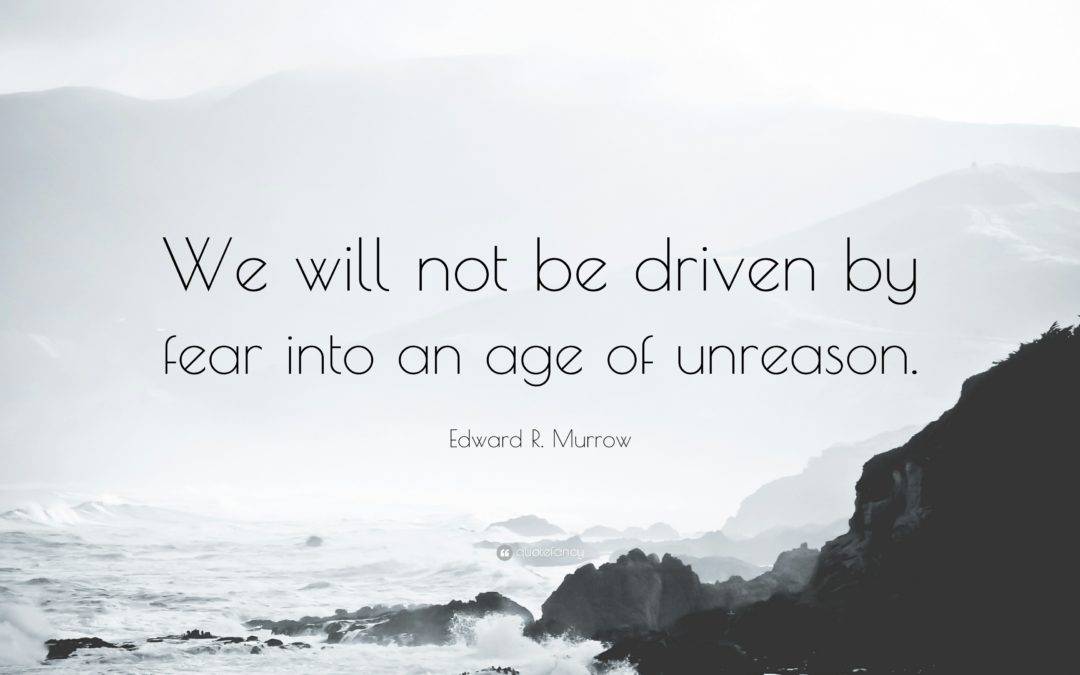3 Reasons Investors Should Stop Watching Financial News
Do you watch the financial news? I have had friends, colleagues, and even clients who spent hours a day tuning in to CNBC or Fox News to try to gain information that would help them with their investment strategies. Guess what? Not one of them became a better investor because of their viewing habits. In fact, watching too much financial news usually resulted in them becoming fearful, stressed, and either unable to make financial decisions or too quick to make ill-advised financial decisions. Simply put: watching financial news offered no benefits and a ton of drawbacks.
As a financial planner, I certainly keep up on what’s going on in the markets and around the world. After all, it’s my job. However, I do not regularly watch financial news and I advise that my clients avoid it altogether. Still not convinced? Here are three reasons why I think all investors should stop watching financial news.
They Incite Fear to Increase Viewership
I’m sure you’ve heard the term ‘if it bleeds, it leads’. This classic take on journalism and the news is basically saying that negativity sells. When we are fearful, we reach out to get comfort from ‘experts’ in the industry who can lay our fears to rest and tell us what to do. Networks are well aware of this, and they know that the more fearful they can make potential viewers, the more they will watch. They have no incentive to tell the truth, to reassure viewers that everything will work out in the end, or to provide a balanced look at what’s really going on. They are there for only one thing: to get more people to watch and to increase ratings. This means they continually spin issues to keep the fear Ferris wheel turning and keep you tuning in for more.
No One Can Predict the Future
Many investors tune in to the news because they think it will give them a glimpse into the future. What will the markets look like next week? How will the political unrest in our nation affect our stocks? Will the North Korea situation get worse and what does this mean for our future? However, no one can predict the future and this certainly includes financial pundits and commentators. The best thing we can do as investors (and as advisors) is focus on the present while planning for long-term goals. We can only deal with what has already happened and what is happening now; attempting to deal with the future leads to unnecessary stress.
It Can Cause Emotional Reactions
Did you know that most people underperform their own investments because they make rash decisions to pull out of investments or make other ill-advised decisions? When you watch the news, it’s easy to have an emotional reaction to what’s going on in the world and the markets. In fact, that’s what the stations want. If you are prone to making decisions out of fear or worry, you may pull out of an investment that would have been great for your long-term plan based on a short-term incident (or a flat-out lie). When you take the emotional powder keg of the financial news out of the picture, it’s much easier to commit to a long-term strategy with your financial advisor.
When you shut off the financial news, you can focus on much more enriching activities like reading books, listening to podcasts, or spending more time on hobbies or with family. You can also remove a lot of unnecessary stress and worry from your life (and the life of your financial advisor!). If you have any questions about developing a long-term financial strategy based on facts instead of fear, please reach out. I’d love to help!
[convertkit form=5060596]
 Patrick Tucker, owner of True Measure Wealth Management, has over 20 years experience in the industry and has spent the last 15 years learning the ins and outs of the fee-only advisory business. He focuses on client behaviors and what ‘wealth’ means for each individual client to provide caregiving plans that leads to a mindful fulfillment of financial goals. A lifelong learner, Patrick uses his continued knowledge to become a valued partner for his clients and help them explore the wisdom of true wealth.
Patrick Tucker, owner of True Measure Wealth Management, has over 20 years experience in the industry and has spent the last 15 years learning the ins and outs of the fee-only advisory business. He focuses on client behaviors and what ‘wealth’ means for each individual client to provide caregiving plans that leads to a mindful fulfillment of financial goals. A lifelong learner, Patrick uses his continued knowledge to become a valued partner for his clients and help them explore the wisdom of true wealth.

